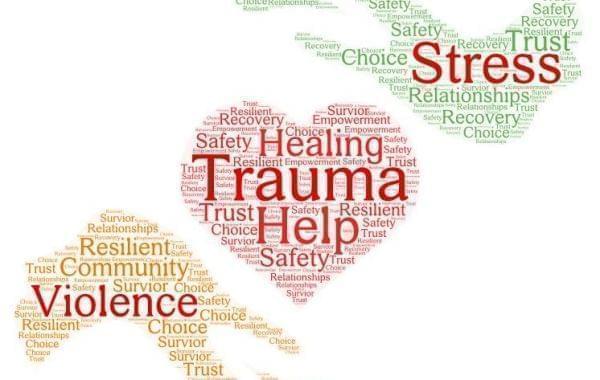‘Healing Solutions’ Training Program Equips People To Help Trauma Victims

CU Peace and Resiliency Champions
Researchers who study community violence have identified trauma as one of its main underlying causes. And it’s a vicious cycle: trauma spurs violence, which causes more trauma to the community.
A free training program known as “Healing Solutions” aims to equip participants with the tools they need to help victims of trauma.
It begins on Thursday, April 10, and is hosted by the organization CU Peace and Resiliency Champions.
Karen Simms is a licensed therapist and one of the organizers. She said when it comes to helping people who have experienced trauma, one of the most important things to understand is that trauma can manifest itself in different ways.
“I could look like I have depression, I could look like I have ADHD, I could look like I have a substance abuse problem, I could look like I have chronic health issues,” she said. “And what we’re finding through the science and research is that a lot of that is trauma-based. And if you don’t look at the fact that I’ve been impacted by trauma, you could really pathologize me.”
I sat down with Simms to learn more about the issue of helping communities that are facing trauma.
Here are some of the highlights:
What it means to take a public health approach to addressing community violence:
If you think about it from a disease model, everything has its original source, like the flu. And in order to inoculate a community, to protect it, we have to treat people who have the flu and prevent further outbreaks. A public health approach is both a treatment approach - so dealing with symptoms. But also making sure that we vaccinate the community deep and broad to try to prevent potential outbreaks.
Also, looking at the complexity of the issue. Complex issues warrant complex solutions. Knowing that, we need communities to have a variety of different tools in the toolbox.
How to support someone who is hurting:
Everybody experiences trauma differently. Trauma experiences people on a biological level. So it's not only what you see, but there are things that are happening beneath the surface. It impacts every aspect of life: mind, body, spirit, your financial life.
The other thing we want people to know if what helps heal is creating space for people to tell their stories. Secrets make us sick. Not having someone hear us and validate us is part of what makes trauma so insidious. We also know there are ways to listen well, and other ways to listen that get in the way of healing. And because healing needs to happen on multiple levels, know that talking is only one part of the process. People also need things in their community: to be able to have recreation, to have supportive people, a spiritual community, employment, and more.
A trauma-informed approach is a relatively new way of looking at things. I could look like I have depression, I could look like I have ADHD, I could look like I have a substance abuse problem, I could look like I have chronic health issues, or chronic pain. And what we’re finding through the science and research is that a lot of that is trauma-based. And if you don’t look at the fact that I’ve been impacted by trauma, you could really pathologize me.
What it means to take a “restorative justice” approach:
When people are impacted by trauma and violence, they frequently feel disconnected from communities and from themselves. A restorative approach says: when you experience harm, there's a way that you can get back into relationship. And if someone has harmed you, we want to have an approach that says: you are still welcomed in the community, and there's a way to heal and rebound.
There are many sources of trauma in society:
The best way to think about trauma is: it's an experience that overwhelms our ability to cope and understand it and deal with it. That's why it can be so personal for so many people.
People tend to think about personal traumas, like sexual assault, sexual violence, neglect, child abuse, domestic violence. But we also know that there are things like developmental trauma, things that happened to us when we were pretty young, and that we don't have words for and language to understand.
Systems can also bring trauma on people. Well-intended things can take away our sense of power. I've been paying attention to racialized trauma, which I don't think we talk about enough. It's being in an environment or society where people constantly make you feel unsafe, and make you feel under threat. That's racialized trauma that impacts you, not only viscerally, but can impact your stress response neurobiologically.
This interview has been edited and condensed for clarity.
More information about the "Healing Solutions" training program can be found at the Facebook event page.
Follow Christine on Twitter: @CTHerman
Links
- Trauma and Recovery: The Aftermath of Violence, from Domestic Abuse to Political Terror
- President Trump Fires FBI Director; How Trauma Affects Violence
- Gun Violence, Trauma & Grief; The Old State Capitol’s Legacy; Financial Exploitation
- Victims Of Gun Violence Pay A Lifelong Price
- Summer Gun Violence: A Look Toward Solutions; ‘Hate Has No Home Here’ Campaign

